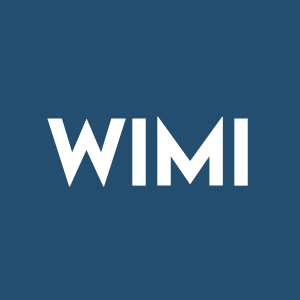WiMi Developed a Decentralized Cloud Manufacturing Model Based on Blockchain(BC)
Rhea-AI Summary
WiMi Hologram Cloud has developed a decentralized cloud manufacturing model based on blockchain (BC), named Decentralized Cloud Manufacturing Application (DCMApp). This model leverages blockchain's decentralized and immutable nature to enhance the transparency, cost-effectiveness, and security of cloud manufacturing systems, eliminating the need for third-party intermediaries.
DCMApp integrates private and public blockchains, using Ethereum as the public blockchain to record and verify manufacturing agreements. Key features include resource registration, querying, protocol signing, and data verification, all facilitated through smart contracts.
The model addresses issues like single points of failure and data breaches inherent in centralized cloud manufacturing. It offers advantages such as decentralization, transparency, improved security, reliability, and scalability. DCMApp is expected to play a significant role in the digital transformation of manufacturing processes under Industry 4.0.
Positive
- WiMi's DCMApp enhances transparency, cost-effectiveness, and security in manufacturing.
- DCMApp eliminates the need for third-party intermediaries, reducing risks of single points of failure and data breaches.
- The hybrid blockchain architecture offers excellent scalability and low-cost storage for manufacturing agreements.
Negative
- None.
News Market Reaction
On the day this news was published, WIMI gained 1.11%, reflecting a mild positive market reaction.
Data tracked by StockTitan Argus on the day of publication.
Industry 4.0 refers to the integration of advanced information technology with manufacturing technology to build smart factories and achieve the digitalization and intelligence of production processes. Its core technologies include cyber-physical systems (CPS), the Internet of Things (IoT), big data analytics, and cloud computing, among others. Through these technologies, Industry 4.0 enables the adaptive, self-organizing, and self-optimizing manufacturing processes, thereby improving production efficiency and product quality while reducing production costs and resource consumption.
Cloud manufacturing is a novel manufacturing model based on cloud computing. It virtualizes and shares manufacturing resources such as equipment, software, capabilities, and knowledge as services, enabling on-demand manufacturing and rapid response to market demands. The pay-as-you-go model of cloud manufacturing technology allows enterprises to acquire advanced manufacturing capabilities without massive investments, greatly reducing manufacturing costs and improving resource utilization efficiency.
However, the centralized structure of cloud manufacturing technology brings a series of issues. For instance, centralized cloud manufacturing platforms rely on third-party service providers, which pose risks of single points of failure and data breaches. Additionally, as manufacturing demands increase, the centralized platform faces increased load pressure, which can lead to service interruptions and performance degradation. Manufacturing data is stored on third-party servers, creating risks of data lock-in and malicious tampering.
To overcome these challenges, WiMi proposes a decentralized cloud manufacturing model based on blockchain technology. Blockchain is a decentralized distributed ledger technology that ensures data immutability and traceability through cryptography and consensus algorithms. Each node in the blockchain network maintains a complete copy of the data, and new data is verified and recorded through consensus mechanisms to ensure the authenticity and consistency of the data. Smart contracts, defined by pre-programmed rules and conditions, automatically execute the contract terms. Smart contracts not only enable automated transactions and payments but also can be used for complex business logic and process control, widely applied in finance, law, the Internet of Things, and other fields.
WiMi's decentralized cloud manufacturing model, based on blockchain(BC) technology, utilizes a hybrid structure in its DCMApp architecture design. It combines private and public blockchains, with the Ethereum network serving as the public blockchain. The private blockchain is used to store manufacturing data and resource information within the enterprise, ensuring data privacy and security. The public blockchain (Ethereum) is used to record and verify manufacturing agreements, facilitating decentralized communication between resource providers and customers through smart contracts.
Working principles of DCMApp:
Resource registration and publication: Manufacturing resource providers register resource information onto the DCMApp platform through the private blockchain and publish it onto the Ethereum network using smart contracts.
Resource querying and matching: Customers query the required manufacturing resources through the DCMApp platform, and smart contracts automatically match suitable resource providers based on customer demands.
Protocol signing and execution: Customers and resource providers sign manufacturing agreements through smart contracts, and the agreement terms and execution status are recorded on the Ethereum network.
Data recording and verification: Data generated during the manufacturing process is recorded on the private blockchain, and key data is uploaded to the Ethereum network for verification using hash values, ensuring data immutability and traceability.
Advantages of WiMi's decentralized cloud manufacturing model based on blockchain(BC):
Firstly, it offers decentralization and transparency: By utilizing blockchain technology for managing manufacturing agreements, it eliminates the reliance on third parties, enhancing the transparency and trustworthiness of agreement execution.
Secondly, it significantly improves security and reliability: The distributed storage and cryptography of blockchain ensure the security and immutability of data, reducing the risks of single-point failures and data breaches.
Furthermore, the hybrid architecture of DCMApp allows manufacturing agreements to be stored on the blockchain network at a low cost, eliminating the need for expensive server infrastructure. It also provides excellent scalability.
As Industry 4.0 advances, the DCMApp of WiMi's decentralized cloud manufacturing model based on blockchain (BC) holds broad application prospects in the manufacturing industry. In the future, DCMApp is expected to become a crucial infrastructure in manufacturing, driving the intelligent and digital transformation of manufacturing processes. Furthermore, with the continuous development of blockchain technology, DCMApp's functionality and performance will further enhance, bringing more innovation and value to the manufacturing industry. DCMApp is poised to serve as a blockchain-based decentralized cloud manufacturing model, enabling decentralized communication between resource providers and customers through smart contracts. It overcomes reliability, security, continuity, and scalability issues brought by the centralized structure in cloud manufacturing technology. DCMApp not only enhances the transparency, cost-effectiveness, and security of manufacturing agreements but also eliminates reliance on third parties, providing new impetus for innovation and development in the manufacturing industry. Against the backdrop of Industry 4.0, DCMApp has the potential to become a critical infrastructure in manufacturing, driving the intelligent and digital transformation of manufacturing processes.
About WiMi Hologram Cloud
WiMi Hologram Cloud, Inc. (NASDAQ:WiMi) is a holographic cloud comprehensive technical solution provider that focuses on professional areas including holographic AR automotive HUD software, 3D holographic pulse LiDAR, head-mounted light field holographic equipment, holographic semiconductor, holographic cloud software, holographic car navigation and others. Its services and holographic AR technologies include holographic AR automotive application, 3D holographic pulse LiDAR technology, holographic vision semiconductor technology, holographic software development, holographic AR advertising technology, holographic AR entertainment technology, holographic ARSDK payment, interactive holographic communication and other holographic AR technologies.
Safe Harbor Statements
This press release contains "forward-looking statements" within the Private Securities Litigation Reform Act of 1995. These forward-looking statements can be identified by terminology such as "will," "expects," "anticipates," "future," "intends," "plans," "believes," "estimates," and similar statements. Statements that are not historical facts, including statements about the Company's beliefs and expectations, are forward-looking statements. Among other things, the business outlook and quotations from management in this press release and the Company's strategic and operational plans contain forward−looking statements. The Company may also make written or oral forward−looking statements in its periodic reports to the US Securities and Exchange Commission ("SEC") on Forms 20−F and 6−K, in its annual report to shareholders, in press releases, and other written materials, and in oral statements made by its officers, directors or employees to third parties. Forward-looking statements involve inherent risks and uncertainties. Several factors could cause actual results to differ materially from those contained in any forward−looking statement, including but not limited to the following: the Company's goals and strategies; the Company's future business development, financial condition, and results of operations; the expected growth of the AR holographic industry; and the Company's expectations regarding demand for and market acceptance of its products and services.
Further information regarding these and other risks is included in the Company's annual report on Form 20-F and the current report on Form 6-K and other documents filed with the SEC. All information provided in this press release is as of the date of this press release. The Company does not undertake any obligation to update any forward-looking statement except as required under applicable laws.
![]() View original content:https://www.prnewswire.com/news-releases/wimi-developed-a-decentralized-cloud-manufacturing-model-based-on-blockchainbc-302301173.html
View original content:https://www.prnewswire.com/news-releases/wimi-developed-a-decentralized-cloud-manufacturing-model-based-on-blockchainbc-302301173.html
SOURCE WiMi Hologram Cloud Inc.








